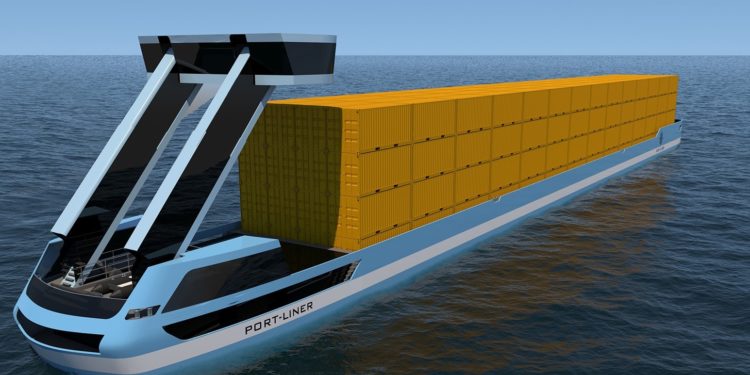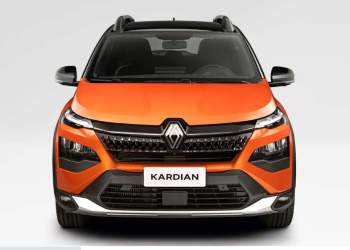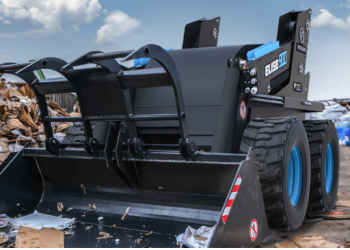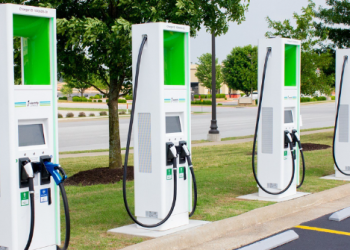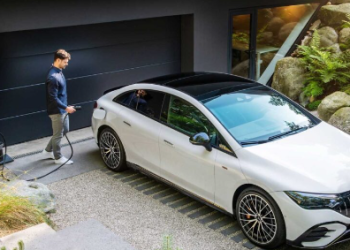The world’s first 100 percent electric ships are ready to sail between the busy ports of Antwerp, Belgium, Amsterdam and Rotterdam, the Netherlands, by the end of the year, reducing the number of diesel container ships embarking and disembarking goods in those ports.
According to a publication by “Mundo Marítimo” based on a report by the German media DW, nicknamed the “Tesla of the seas”, these ships are the latest offering in a fleet of new electric and hybrid ships in Europe.
Related content: Porsche remains ahead: High-performance batteries with silicon anodes and fast charging stations
Port Liner, the Dutch company behind the ships, claims they could revolutionize the polluting shipping and freight industry. “It simply doesn’t make sense for us to build new ships with diesel engines,” said Ton van Meegen, chief executive of Port Liner.
“Our vessels will be used for decades, and electric motors are clearly where the industry is headed,” he added.
Construction of five vessels, with a capacity of 24 containers each, has already begun and will be powered by batteries charged with carbon-free energy and the vessels are expected to be in the water by the end of this year.
Cleaning of the shipping sector
Although initially they will be manned, it is projected that in the long term they will be designed to be autonomous, helping to retire 23,000 cargo trucks, according to the company.
Ships that cross the oceans often use bunkers, the most polluting form of diesel, and their emissions include high levels of nitrogen oxides and sulfur (NOx and SOx), which are linked to cases of asthma, lung cancer and heart disease.
Shipping is responsible for about 3% of global greenhouse gas (GHG) emissions, according to the European Commission.
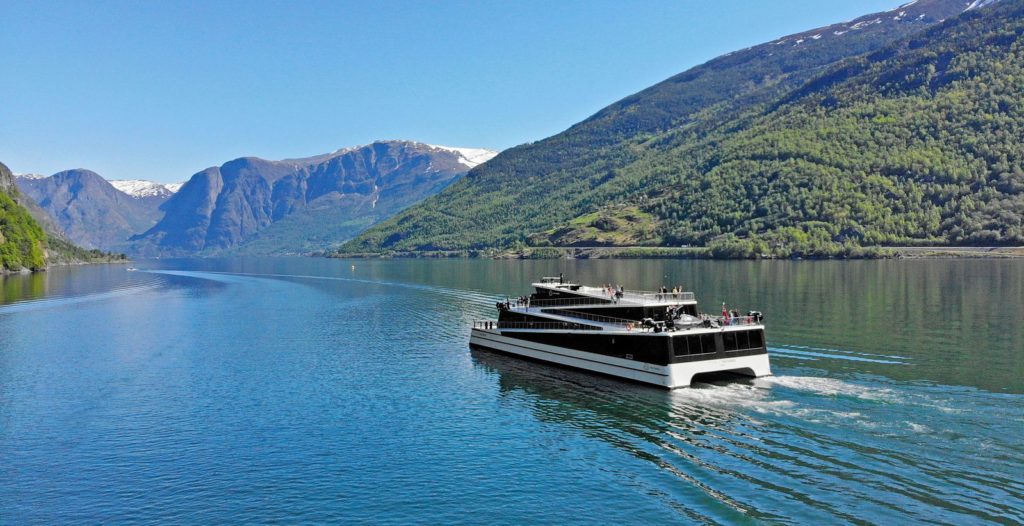
Image: Portliner
While other sectors are expected to reduce their emissions, in shipping it is expected to increase considerably. The International Maritime Organization has established a standard to reduce the amount of sulfur in fuels for maritime transport to 0.5%, down from the current 3.5%, starting in 2020.
The measure is supported by the world’s leading shipping organization, the International Chamber of Shipping (ICS). Likewise, Peter Hinchliffe, Secretary General of the ICS, stated, in an interview with DW, that he also supports the reduction of CO2 emissions in the sector for the benefit of the Paris Agreement.
Energy Revolution
Stronger regulation, coupled with the production of lighter and more powerful batteries, has triggered what Lucy Gilliam, an aviation and maritime transport expert at the Brussels-based NGO “Transport and Environment”, calls the “energy revolution”.
“Around Europe there is a wave of recent developments changing the (shipping) sector at a fast pace,” she said. “We need to bust the myth that batteries are too heavy or don’t have enough capacity to go far. In recent years, this has changed significantly.”
On short trips, the batteries do not add extra weight, unlike traditional fossil fuel-powered ships, according to Gilliam.
Read also: A discovery could revolutionize the future of electric cars
For example, to decarburize the ferry between Dover (in the south of England) and Calais (in the north of France), the battery represents about 1% of the weight of the ship.
However, long-range vessels currently do not have the option to dock regularly to plug in small batteries, so it is unlikely that they will be fully electrified in the near future.
“With current limitations on technology, it seems that electrification will be limited to small craft undertaking short, ferry-type voyages,” explained Hinchliffe.
What are the measures in favor?
Groups like “Transport and Environment” believe that more should be done to encourage the development of electric boats. One obstacle is taxes, which currently apply widely to electricity, but not to the most polluting marine fuels.
Likewise, the globalized nature of the shipping industry translates into strong competition between ports that makes them reluctant to go ahead with green port plans, as well as the imposition of taxes on ships that use dirtier fuels, or more regulations strict rules on emissions from docked ships.
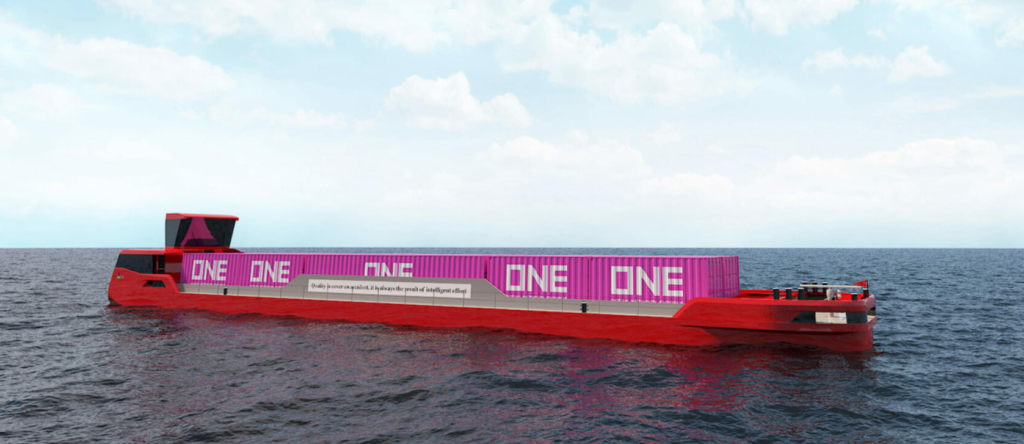
Image: Portliner
However, there are already electric ships sailing, especially in Scandinavian countries. A medium-size ferry, the “MS Ampere”, set sail for the seas of western Norway in early 2015.
The ferry operator Scandlines also operates diesel battery hybrids between Germany and Denmark. According to Gilliam, the electrification of short-haul routes in Europe is inevitable. Nevertheless, in the long term, the group is even more optimistic, believing that fossil fuels will be outdated across the industry.
Source: Mundo Marítimo
Written by I Jhonattan González



